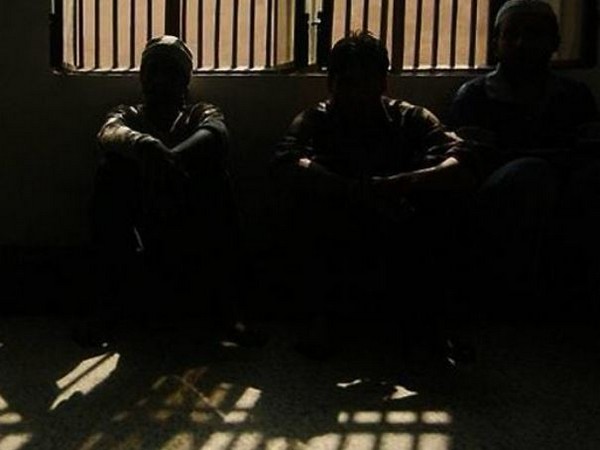Govt plans special remission for prisoners as part of 'Azadi Ka Amrit Mahotsav' celebration

- Country:
- India
Good news is in offing for thousands of women and transgender convicts above the age of 50 as the government intends to do a phased commutation of their sentence, subject to their behavior in jails, as part of Prime Minister Narendra Modi's plans to celebrate 'Azadi Ka Amrit Mahotsav'.
The scheme will also cover male prisoners above the age of 60 and physically challenged convicts who have completed more than half of their total sentence.
Poor prisoners who have completed their sentence but are still in jails due to non-payment of fines imposed on them will be benefitted too by way of waiving the fines.
The scheme, the Home Ministry said, does not apply to those prisoners who were convicted with death sentences, life imprisonment, rape, terror charges, dowry deaths, and money laundering cases.
According to a 2020 official estimate, jails across India continued to remain overcrowded, lodging about 4.78 lakh prisoners against an actual capacity of 4.03 lakh.
Of the total prisoners, nearly a lakh are women.
As per a home ministry communication to all states and Union Territories, those prisoners who fulfill the eligibility criteria will be released in three phases -- August 15, 2022, January 26, 2023, and August 15, 2023.
The eligibility criteria for prisoners to be considered for remission includes those convicts who have consistently maintained good conduct during their term in prisons especially those with no punishment during the sentencing period in the last three years.
The home ministry conveyed to the states and UTs that women and transgender convicts of 50 years of age and above, male convicts of 60 years of age and above, physically challenged and disabled convicts with 70 percent disability and more, who have completed 50 percent of their total sentence can be released to commemorate the 75th anniversary of India's independence.
Poor prisoners who have completed their sentence but are still in jail due to non-payment of fines imposed on them can be released by waiving the fine, the ministry said.
The prisoners should be considered for release after a thorough examination by a State Level Screening Committee consisting of senior civil and police officers, it added.
Persons who committed an offense at a young age between 18-21 years and with no other criminal case against them and who have completed 50 percent of their sentence period will also be considered for the special remission, it said.
However, the home ministry has made it clear that persons convicted with death sentence or where the death sentence has been commuted to life imprisonment or persons convicted for an offense for which punishment of death has been specified as one of the punishments and persons convicted with a sentence of life imprisonment will not be considered for release.
Those convicted for rape, under terror charges, Explosive Act, National Security Act, Official Secrets Act, Anti-Hijacking Act, Prevention of Corruption Act, dowry death, counterfeiting currency notes, human trafficking, money laundering charges, black money cases will not be considered for remission.
The state governments and UT administrations were advised by the home ministry to constitute the state-level screening committee comprising an additional chief secretary or principal secretary in charge of the home department of the concerned state or the UT as chairperson, additional chief secretary or principal secretary in charge of the department of law as member and DG prisons as member secretary.
The committee will review the records of all prisoners and identify the eligible prisoners who satisfy the prescribed conditions for remission and make its recommendations to the state government after examining each case in detail and taking into account all relevant factors and will take consider the decision to provide the benefit of special remission scheme to the entitled convicts.
Cases, where approval of the central government is required as per law, are to be sent to the home ministry for seeking its concurrence and approval.
The foreign national convicts shall be released only with the specific consent of the ministry of external affairs. Cases of foreign nationals are to be sent to the home ministry sufficiently in advance before submitting the recommendations to the Governor for obtaining the clearance of the ministry of external affairs, it said.
(This story has not been edited by Devdiscourse staff and is auto-generated from a syndicated feed.)










